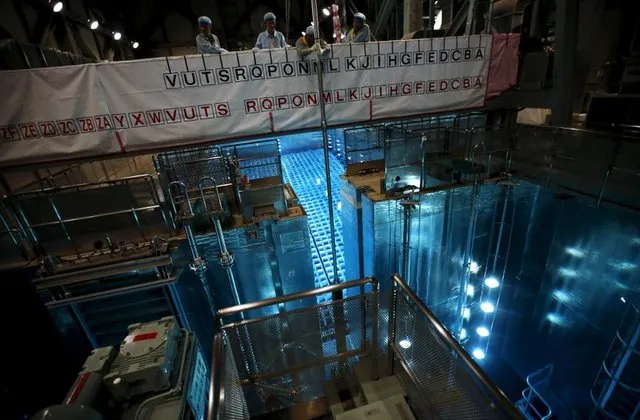Các lò phản ứng của nhà máy này có thiết kế tương tự các lò phản ứng của nhà máy Fukushima gặp sự cố cách đây 8 năm. Việc chấp thuận này có thể gây ra nhiều tranh cãi.

Nhật Bản cho phép một nhà máy điện hạt nhân kéo dài thời gian hoạt động. Ảnh minh họa. Nguồn: Reuters
Theo đó, lò phản ứng Tokai Daini thuộc công ty năng lượng Japan Atomic Power được cấp phép hoạt động thêm 20 năm nữa. Việc gia hạn này sẽ là động lực thúc đẩy cho nhà điều hành Japan Atomic Power, khi công ty này đang phải chịu thất thoát doanh thu sau khi hai lò phản ứng ngừng hoạt động.
Cơ quan quản lý hạt nhân Nhật Bản thông qua đề xuất gia hạn này tại một cuộc họp các thành viên hôm 7/11.
Đại diện công ty Japan Atomic Power cho Reuters biết họ cần phải hoàn tất một cách an toàn việc nâng cấp cũng như sẽ cho xây dựng thêm hệ thống tường chống thảm họa sóng thần cho lò Tokai Daini.
Dự kiến nhà máy sẽ tái vận hành vào năm 2020. Japan Atomic cũng cần có thêm sự chấp thuận từ chính quyền địa phương và người dân trước khi bắt tay vào kế hoạch.
Tokai Daini đã hoạt động sau khi thảm họa sóng thần dẫn đến vụ nổ tại nhà máy điện Fukushima Daichi xảy ra ngày 11/3/2011. Nó được thiết lập để khắc phục thiệt hại do thảm họa này gây ra nhưng sau đó đã tự động ngừng vận hành, theo Japan Atomic.
Việc kéo dài thời gian hoạt động này có thể thúc đẩy ngành công nghiệp điện hạt nhân của Nhật Bản dù vậy vẫn không đủ để đáp ứng mục tiêu cung cấp điện mà chính phủ đặt ra cho đến năm 2030.
Năng lượng điện hạt nhân vẫn đang là lựa chọn thứ yếu ở Nhật Bản và nước này sẽ chỉ tái khởi động một phần trong số 54 lò phản ứng đang có kể từ sau thảm họa năm 2011.
Japan approves extension for reactor similar to Fukushima units that melted down
(Reuters) - Japan's nuclear regulator approved an extension of operations for a 40-year-old reactor near Tokyo that has the same basic design as those that melted down in the Fukushima crisis nearly eight years ago, a move that is likely to be controversial.
The reactor, Tokai Daini, is the first boiling water reactor (BWR) to be approved for a lifetime extension of 20 years. The approval will be a boost for operator, Japan Atomic Power Co, which is owned by the country's main utilities and is bleeding cash because of the shutdown of its two nuclear power units.
Japan's Nuclear Regulation Authority approved the extension at a meeting of its commissioners on Wednesday, it said.
Japan Atomic must complete safety upgrades, and a company spokesman told Reuters the nuclear operator will build a tsunami protection wall to fortify Tokai Daini. A restart of the plant is not expected till the 2020s.
Japan Atomic will also need the approval of local and prefectural authorities before it can resume operations.
Tokai Daini was operating when a massive earthquake struck off the northeast coast of Japan on March 11, 2011, creating a tsunami that swamped Tokyo Electric Power's Fukushima Daichi plant to the north, causing explosions and meltdowns at three reactors.
The Tokai Daini plant sustained damage, but shut down automatically, according to Japan Atomic.
While the extension will be a further boost for Japan's resurgent nuclear industry, the sector will still miss a government target of providing at least a fifth of the country's electricity by 2030, an analysis by Reuters showed last week.
Nuclear power remains an unpopular energy option in Japan and the country will reboot only a fraction of the 54 reactors it had before the 2011 disaster.
Six reactors at Fukushima Daiichi are being dismantled in a decades-long exercise that is fraught with technological challenges and hampered by radioactive waste. Operators have also decided to decommission a further 10 units across the country since Fukushima.
Nine reactors have restarted, all of them pressurized water reactors located far from Tokyo, while the stigma of Fukushima still hangs over use of the older BWR technology.


